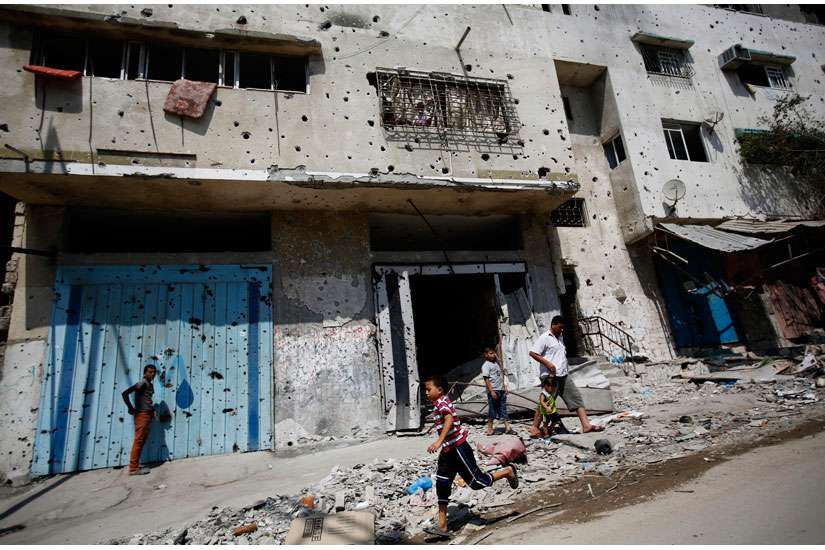In an interview from Amman, Jordan, Jan. 16, Saint-Jean-Longueuil Bishop Lionel Gendron, co-treasurer of the Canadian Conference of Catholic Bishops, said he witnessed much fear on both sides. Israeli parents fear for the security of their children, while Palestinians fear for their livelihoods and their freedom while living under occupation, and the possibility of more fighting, the bishop said.
Gendron was one of 16 Roman Catholic bishops who took part in the annual visit to the Holy Land organized by the bishops of England and Wales. The group issued a statement stressing the importance of human dignity as God-given, since Muslims, Jews and Christians believe human beings are created in the image and likeness of God, he said, describing the call to human dignity as “the first and most important step towards peace.”
While in the Holy Land, the bishops tried to be objective, to understand both the Palestinian and the Israeli point of view, he said.
“There is a lot of fear maybe because there is a lot of ignorance,” Gendron said.
He recalled returning through the border control process and one of the Israeli officials asked him what his business had been in Gaza. He told her he had been there to observe the destruction of hospitals, schools, houses and “all the fear these people have been going through for 41 days” during the recent fighting. She told him that while she felt sympathy, she admitted she didn’t know what was on the other side of the border.
While there is a concrete wall between Israel and Gaza, “there is also a wall of ignorance between the two,” the bishop said. “There is no confidence, no faith, and no truth in the relationship. It is really difficult to overcome the situation now.” Gendron said he had heard about the destruction in Gaza, but seeing the devastation was something else. It reminded him of the destruction after the earthquake in Haiti. With the present blockade in place, the Gazans “see no possibility for reconstruction,” he said.
Gaza “is practically a prison right now,” he said. The rocket launches against Israel have stopped, but people they met expressed fear of another war and clearly there are “not the same means to fight the war.”
Despite the devastation, the bishops saw signs of hope inside Gaza’s small Christian community. While most of Gaza’s 2,000 Christians are Greek Orthodox, the 200 or so Roman Catholics under the Jerusalem Patriarchate run two schools, a parish, hospitals and food services.
The bishops visited the Catholic-owned schools where most of the students are Muslim, because the schools and services are open to everyone, he said. They met with students and teachers and one teacher began to weep and could not finish her talk.
“People are still living the trauma they have gone through,” the bishop said.
The day after the trip to Gaza, some of the bishops visited the Israeli town of Sderot that is close to the border with Gaza. This town suffered rocket attacks and experienced a great deal of fear even though the casualty levels were not as high as in Gaza, he said.
The bishops also stopped by the security wall between Jerusalem and Bethlehem, pausing for prayer at the same place Pope Francis had stopped last year. They also visited the Cremisan Valley where a portion of the security wall is slated to be built.
Gendron pointed out the proposed wall would divide the Christian community, separate farmers from their lands and block off a monastery and a school from Christian believers and students.
Upon his return to Canada, the bishop hopes to foster more prayer in his diocese and in the Catholic Church in Canada.
“We have to intervene for Palestinians and for all refugees in all places in the Middle East,” he said. “We have to do our best to help these people to enjoy human dignity as much as possible.”


